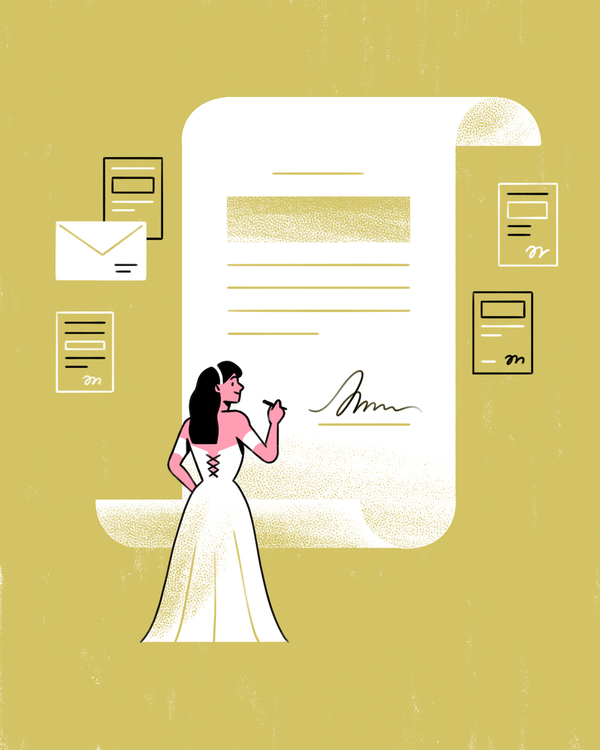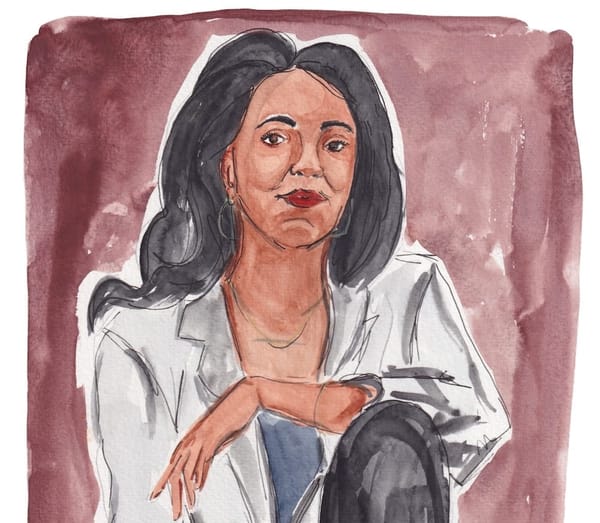Afghan Women Are Speaking Out. Is the World Finally Listening?
Afghan women gave testimony about the human rights abuses they have experienced. To Afghan women and girls who feel forgotten, that in itself is a message of hope.
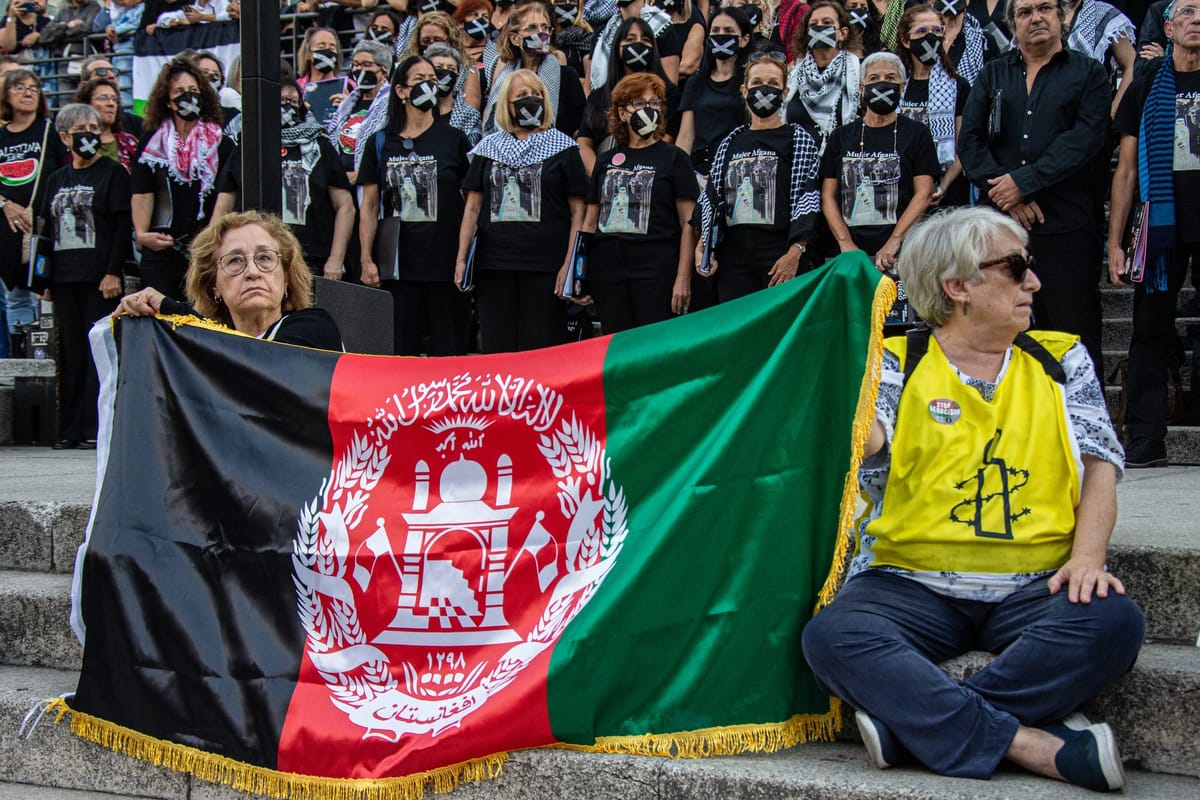
In the scholarly calm of a room lined with hundreds of leather-bound books, Afghan women gathered last week and did something they’ve never been given the opportunity to do before: They gave testimony about the abuses they have suffered at the hands of the Taliban.
Over three days of hearings in Madrid that were broadcast live in Afghanistan, an international panel of judges, including lawyers, scholars and journalists heard evidence from survivors of torture and persecution from the worst country on earth to be a woman.
One described the challenge of using her wheelchair while dressed in the long, loose garments that the Taliban requires women to wear. Others talked about the trauma of not being allowed to do jobs for which they had spent years training.
The hearings were convened under the Permanent People’s Tribunal—an independent legal body that examines human rights cases that states are unwilling or unable to prosecute. It has no powers to punish Taliban members, so its role is largely symbolic. But by pure coincidence, it took place the same week the U.N. Human Rights Council adopted a resolution to investigate and document human rights abuses in Afghanistan, a move that could lead to eventual prosecutions.
In July, the International Criminal Court (ICC) issued arrest warrants for two of the Taliban’s top leaders over the gender-based persecution of women and girls in Afghanistan, which is a crime against humanity under international law. We won’t see the Taliban in court any time soon—the ICC has no police force of its own and has to rely on individual countries to carry out arrests—but these actions matter to Afghan women and girls who feel abandoned by the world.
The stripping away of rights
For more than four years, the Taliban’s onslaught on the rights of women and girls has generated international hand-wringing, but little concrete action. When they retook power four years ago, Taliban leaders assured the world they had changed in the two decades since they first ruled Afghanistan, when girls were banned from attending school. Then they doubled down, closing girls’ secondary schools and banning women from attending university. Before long, women couldn’t leave home without a male relative accompanying them and were banned from most jobs. Beauty salons—among the few places where women could still gather—were raided by Taliban forces and shut down, sometimes violently. Women must now wear long, loose clothing that covers even their faces, with only the eyes allowed to be seen, under draconian rules that are enforced by the so-called morality police.
International sanctions on Taliban leaders do not appear to have weakened their resolve, and they are no longer as isolated as they were in 2021. In July, Russia became the first state to recognize the Taliban government, and last week, India said it was reopening its embassy in Kabul.
Demanding accountability
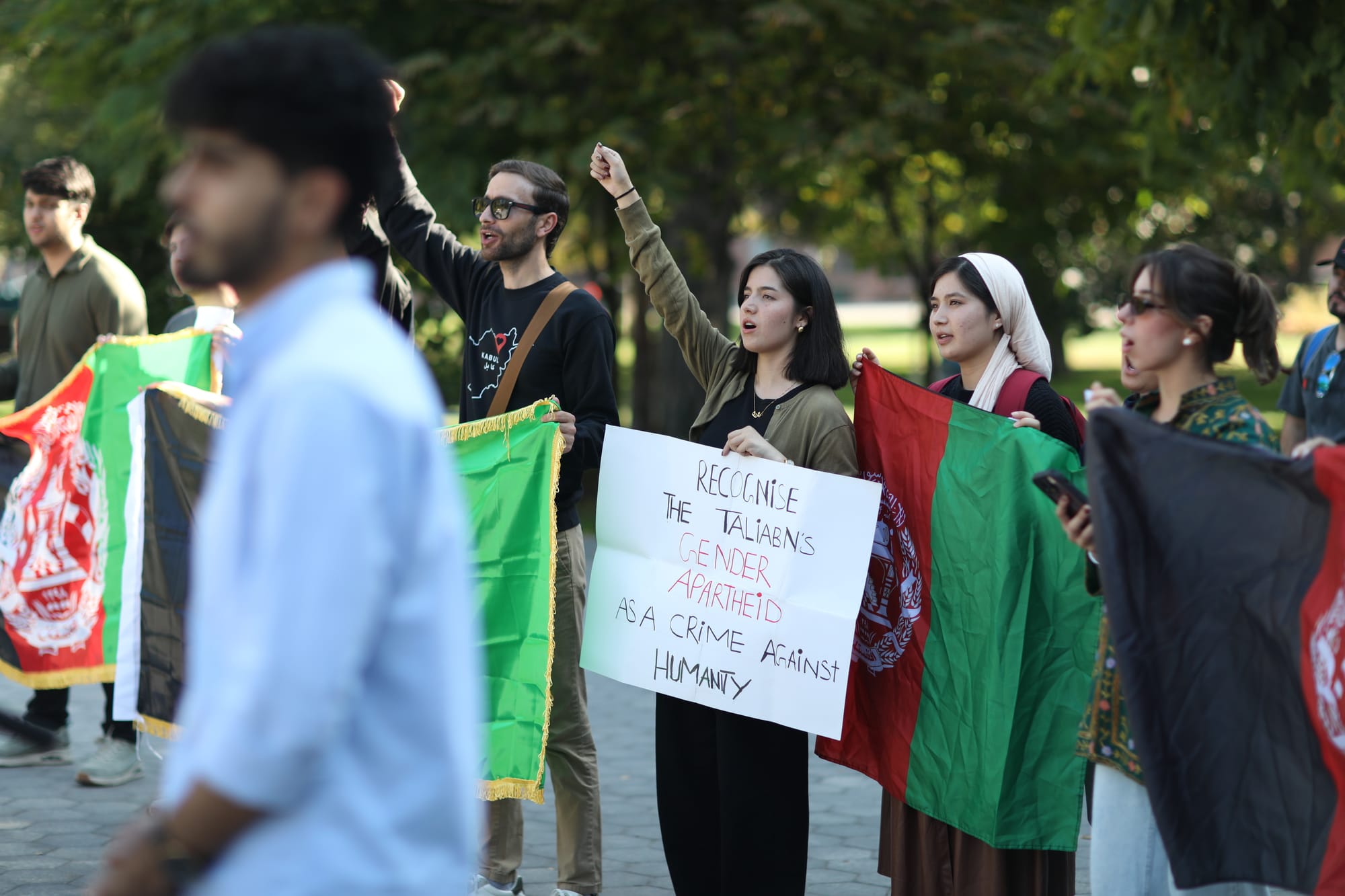
“It can feel very hopeless if you are an Afghan girl. You have lost the opportunity to study, to work, to move around, for over four years, and it can feel like you have been completely forgotten,” said Shaharzad Akbar, the executive director of the Afghan human rights organization Rawadari and one of the key figures behind the People’s Tribunal for the women of Afghanistan. “So I think for me, accountability is also about preserving hope.”
Akbar grew up in Pakistan, where she lived as a refugee during the Taliban’s first period in power. After completing her studies in the U.S. and U.K., she moved back to Afghanistan where she worked in civil society groups and in the media, later becoming an advisor to the president. In 2019, she took over as chair of the Afghan Human Rights Commission, but she fled the country when the Taliban returned to power in 2021. The Taliban have since abolished the Commission.
She said the U.N. Human Rights Council’s resolution to investigate abuses in Afghanistan is highly significant and has been a long time coming: She lobbied for it even before the Taliban’s return to power. It’s the first time the U.N. has committed to such a wide-ranging investigation of human rights violations in a country whose citizens have suffered decades of conflict.
Fereshta Abbasi, a Human Rights Watch researcher who covers Afghanistan, called the announcement a “huge win” for Afghans. “It sends a strong message to the victims in Afghanistan that their suffering is not erasable, that their pains are not forgettable, that the grave abuses and the culture of impunity has been broken,” she said.
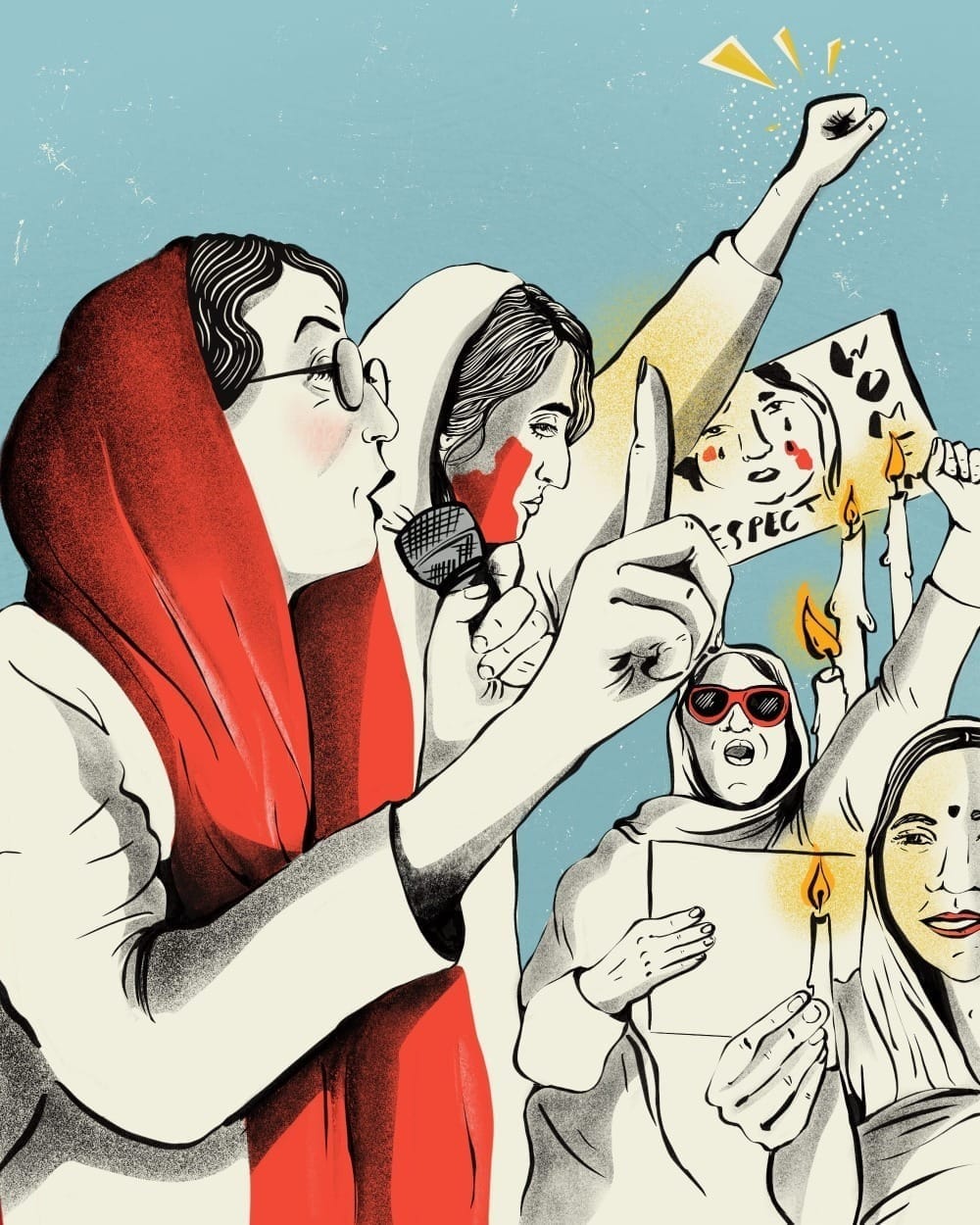
Silenced voices being broadcast
It’s easy to be pessimistic about the situation in Afghanistan. International political will to help Afghan women and girls thus far has been sorely lacking. Even last week’s U.N. resolution was criticized by China, which has cultivated ties with the Taliban. (Analysts say China covets Afghanistan’s copper, lithium and other mineral resources.) The resolution also faced initial opposition from the U.S., whose own military actions in Afghanistan could face scrutiny under its terms.
But Abbasi and Akbar said news of both the U.N. resolution and the tribunal was filtering through to women inside Afghanistan and that’s mission critical for preserving what remains of morale.
Although the Taliban restricts the media inside Afghanistan, Afghan news organizations (in exile) found ways to cover the proceedings in Madrid. They were broadcast live by Afghanistan International, a London-based channel that is officially banned inside the country, but can still be accessed.
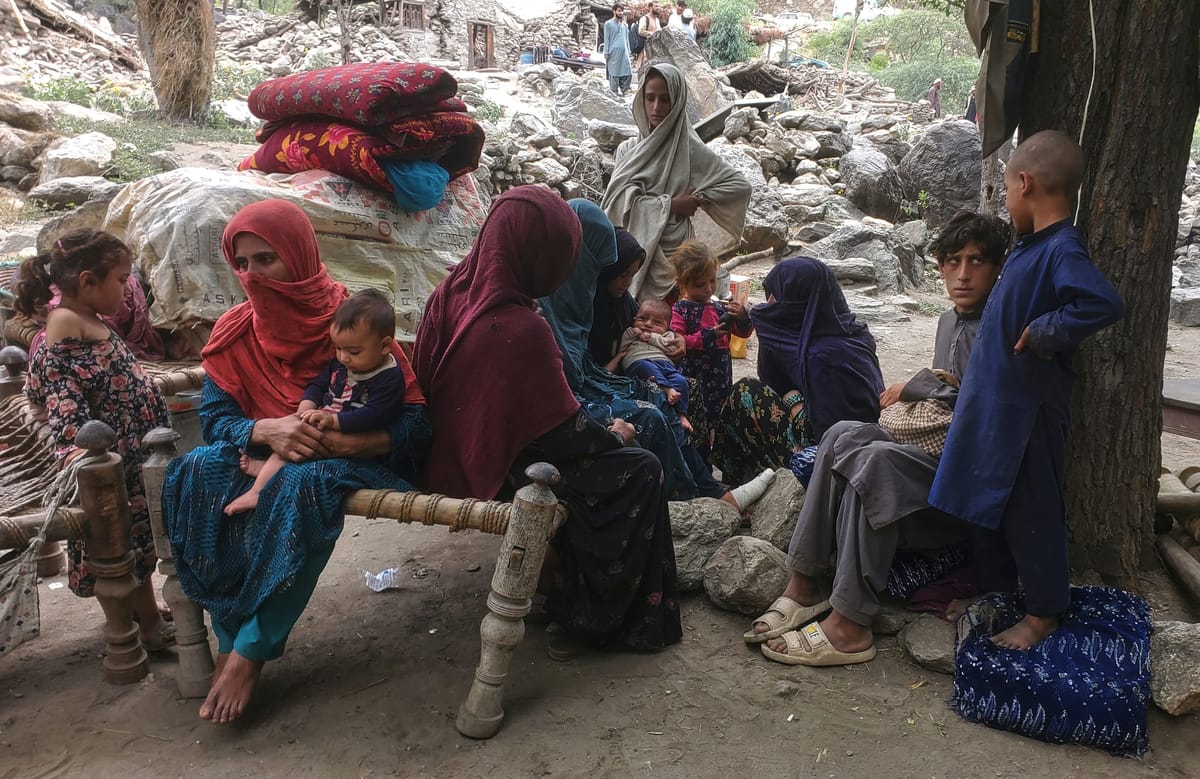
Speaking out
Among those who gave evidence: a student who survived three suicide bombings, leaving her with lifelong injuries. Others described how they were arrested and tortured for the crime of peaceful protest to demand equal rights for women. Some witnesses pulled out before the hearings, fearful of the possible consequences for their relatives still in Afghanistan.
Eight women gave evidence from inside Afghanistan through pre-recorded testimonies played in court and written accounts read by volunteers. Among them were students, teachers and healthcare workers whose lives had been radically upended since the events of 2021.
“It was really important for us to give the mic to survivors,” said Akbar. “Afghanistan has never had a transitional justice process, a truth-telling process of any kind, which is devastating. This was the first step to that.”
Zahra Nader, an Afghan journalist who covered the tribunal, said she was particularly struck by the testimony of Zarmina Paryani, a young woman who spent a month in jail for protesting the clawback of women’s rights in 2022. When police raided the home she shared with her sisters, Paryani was so scared she jumped from a third-floor window. She believes it was only the quick thinking of her sister, who recorded the raid on their apartment, that saved them all from being killed.
Paryani and her sisters have since fled Afghanistan and been offered asylum in Germany, a journey they recorded and later shared with the BBC.
“The Taliban weren’t able to silence her,” said Nader, the journalist. “That was really striking and powerful to me.”




